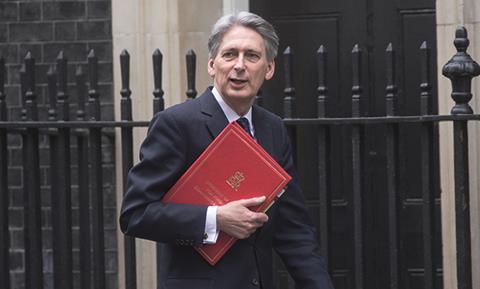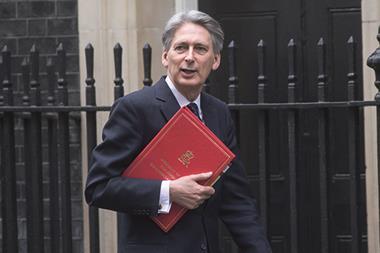Can we stop referring to the housing crisis as a ‘crisis’? Clearly, the country suffers from a severe shortfall of new housing and prices continue to spiral upwards, becoming ever further out of reach of first-time buyers. But a crisis? I don’t think so.

Because if it was a crisis, then surely successive governments would have taken the bold action necessary to resolve it.
When Lehmans crashed back in 2008 and the entire banking system looked set to collapse, the government stepped in with a £1.1trn bailout. That is how governments respond to crises.
But with housing, the government tinkers, announcing this initiative or that planning reform - a pot of money here, a clever wheeze there. But bold action? No.
Don’t get me wrong, progress is being made. The latest figures this week showed 189,900 homes were completed in 2015-16, an 11% rise on the previous year and the highest level for eight years.
The government welcomed this improvement as a sign it was on track to meeting its target of building one million homes by 2020.
But let’s not kid ourselves: even if the industry lifts its output to 200,000 homes per year, that is still way short of what is required to meet demand - indeed, Savills this week put the true number at more like 300,000.
Long-term approach to housing
Next week, Philip Hammond will no doubt use his first Autumn Statement as chancellor to unveil the latest efforts by government to tackle the shortfall - and housing minister Gavin Barwell, who was new to the industry but has impressed many who have met him, will publish a white paper that he says will set out a long-term policy approach to housing.
That is precisely what is needed - but the problem is that when politicians talk about long term they mean four or five years, not 10 or 20, and when they talk about a plan, they mean a few new initiatives and a package of minor reforms.

They don’t mean the kind of response a crisis demands - for that would require real political courage and vision.
The truth is it is not the private housebuilding industry that is to blame for the housing crisis - it is successive years of bad government policy.
When Lehmans crashed the government stepped in with a £1.1trn bailout - that is how governments respond to crises
Housebuilders could, of course, always do more, but even in the halcyon days of post-war building, private sector output did not often climb above 200,000 homes a year.
The difference was that in those days the public sector built more than 100,000 homes and the government took bold action when it came to planning.
Today, neither really apply.
And until they do; until the government gets serious and embarks on wholesale reform of the green belt, which is choking growth; until it removes the shackles from local authorities and allows them to borrow to build at scale; and until it backs build-to-rent with every possible lever, the housing shortfall will only get worse.
It will remain a crisis, but it won’t be treated as such.
That’s all, folks!
This is my last issue of Property Week - and my last week as a journalist. After reporting on property and the built environment for nearly 10 years, it’s time for a change.
It’s been a pleasure writing about this broad and endlessly fascinating industry; the people and the buildings and places they produce are inspiring.
Happily, I’m not leaving property altogether - instead I’m crossing the floor and joining built environment PR agency ING Media. So see you at an industry event some time soon - just don’t call me a hack.






























1 Readers' comment